N-(2-PHENYLETHYL)-INDOMETHACIN AMIDE
- CAS NO.:261766-32-9
- Empirical Formula: C27H25ClN2O3
- Molecular Weight: 460.95
- MDL number: MFCD02683391
- SAFETY DATA SHEET (SDS)
- Update Date: 2023-05-18 11:31:03

What is N-(2-PHENYLETHYL)-INDOMETHACIN AMIDE?
The Uses of N-(2-PHENYLETHYL)-INDOMETHACIN AMIDE
An aromatic amide of indomethacin recently reported to be a potent and selective reversible inhibitor of COX-2. Inhibits human recombinant and ovine COX-2 with IC50 of 0.06 uM and 0.125 uM, respectively
The Uses of N-(2-PHENYLETHYL)-INDOMETHACIN AMIDE
N-(2-Phenylethyl)indomethacin Amide is an aromatic amide of indomethacin reported to be a potent and selective reversible inhibitor of COX-2. N-(2-Phenylethyl)indomethacin Amide inhibits human recombinant and ovine COX-2 with IC50 of 0.06 uM and 0.125 uM, respectively.
What are the applications of Application
N-(2-Phenylethyl)indomethacin Amide is an inhibitor of Cox-2
Definition
ChEBI: N-(2-phenylethyl)-Indomethacin amide is a N-acylindole.
Biological Activity
n-(2-phenylethyl)-indomethacin amide is a reversible, potent and selective cox-2 inhibitor [1].cyclooxygenase (cox) is an enzyme responsible for formation of prostanoids, including thromboxane and prostaglandins such as prostacyclin. cox-1 is the constitutive isoform and is mainly responsible for the synthesis of cytoprotective prostaglandins in the gastrointestinal tract (gi) and of the proaggregatory thromboxane in blood platelets. cox-2 is inducible and short-lived that is stimulated by endotoxin, cytokines, and mitogens. cox-2 plays important roles in prostaglandin biosynthesis in inflammatory cells the central nervous system [1].n-(2-phenylethyl)-indomethacin amide (n-2pia) is a reversible, potent and selective cox-2 inhibitor that inhibits human recombinant cox-2 and ovine cox-1 with ic50 values of 0.06 and >66 μm, respectively. it is over 1000 times less potent as an inhibitor of ovine cox-1. n-(2-phenylethyl)-indomethacin amide is an analogous derivative of indomethacin that shows selective against cox-2 [1].in the carageenan-induced foot pad edema assay, orally administration of n-2pia showed anti-inflammatory activity [1].
References
[1]. kalgutkar as, marnett ab, crews bc, et al. ester and amide derivatives of the nonsteroidal antiinflammatory drug, indomethacin, as selective cyclooxygenase-2 inhibitors. j med chem. 2000 jul 27;43(15):2860-70.
Properties of N-(2-PHENYLETHYL)-INDOMETHACIN AMIDE
| Boiling point: | 640.5±55.0 °C(Predicted) |
| Density | 1.22±0.1 g/cm3(Predicted) |
| storage temp. | −20°C |
| solubility | ≤80mg/ml in ethanol;10mg/ml in DMSO;14mg/ml in dimethyl formamide |
| pka | 15.12±0.46(Predicted) |
| form | Pale yellow solid. |
Safety information for N-(2-PHENYLETHYL)-INDOMETHACIN AMIDE
Computed Descriptors for N-(2-PHENYLETHYL)-INDOMETHACIN AMIDE
New Products
(S)-3-Aminobutanenitrile hydrochloride 4-Methylphenylacetic acid N-Boc-D-alaninol N-BOC-D/L-ALANINOL Tert-butyl bis(2-chloroethyl)carbamate 3-Morpholino-1-(4-nitrophenyl)-5,6-dihydropyridin- 2(1H)-one Furan-2,5-Dicarboxylic Acid Tropic acid 1-Bromo-3,5-Di-Tert-Butylbenzene S-2-CHLORO PROPIONIC ACID ETHYL ISOCYANOACETATE 2-Bromo-1,3-Bis(Dimethylamino)Trimethinium Hexafluorophosphate 4-IODO BENZOIC ACID 3-NITRO-2-METHYL ANILINE 1-(2,4-DICHLOROPHENYL) ETHANAMINE (2-Hydroxyphenyl)acetonitrile 4-Bromopyrazole 2-(Cyanocyclohexyl)acetic acid 4-methoxy-3,5-dinitropyridine 1-(4-(aminomethyl)benzyl)urea hydrochloride 2-aminopropyl benzoate hydrochloride diethyl 2-(2-((tertbutoxycarbonyl)amino) ethyl)malonate tert-butyl 4- (ureidomethyl)benzylcarbamate Ethyl-2-chloro((4-methoxyphenyl)hydrazono)acetateRelated products of tetrahydrofuran

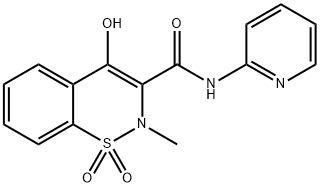
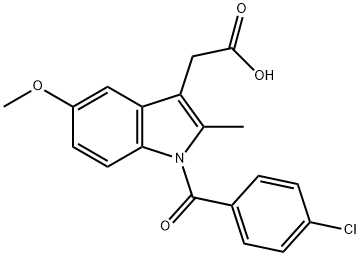
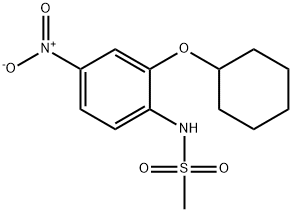
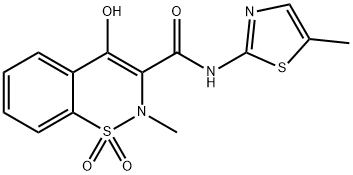
![4-[5-(4-CHLOROPHENYL)-3-(TRIFLUOROMETHYL)-1H-PYRAZOL-1-YL]BENZENESULFONAMIDE](https://img.chemicalbook.in/StructureFile/ChemBookStructure3/GIF/CB3243082.gif)
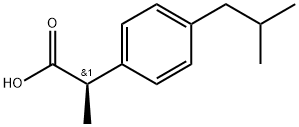
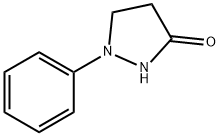
You may like
-
 2033-24-1 98%View Details
2033-24-1 98%View Details
2033-24-1 -
 42831-50-5 5-METHYLISOXAZOLE-4-CARBOXYLIC ACID 98%View Details
42831-50-5 5-METHYLISOXAZOLE-4-CARBOXYLIC ACID 98%View Details
42831-50-5 -
 1975-50-4 98%View Details
1975-50-4 98%View Details
1975-50-4 -
 2-HYDROXY BENZYL ALCOHOL 98%View Details
2-HYDROXY BENZYL ALCOHOL 98%View Details
90-01-7 -
 2-Chloro-1,3-Bis(Dimethylamino)Trimethinium Hexafluorophosphate 221615-75-4 98%View Details
2-Chloro-1,3-Bis(Dimethylamino)Trimethinium Hexafluorophosphate 221615-75-4 98%View Details
221615-75-4 -
 61397-56-6 CIS BROMO BENZOATE 98%View Details
61397-56-6 CIS BROMO BENZOATE 98%View Details
61397-56-6 -
 14714-50-2 (2-Hydroxyphenyl)acetonitrile 98+View Details
14714-50-2 (2-Hydroxyphenyl)acetonitrile 98+View Details
14714-50-2 -
 118753-70-1 98+View Details
118753-70-1 98+View Details
118753-70-1